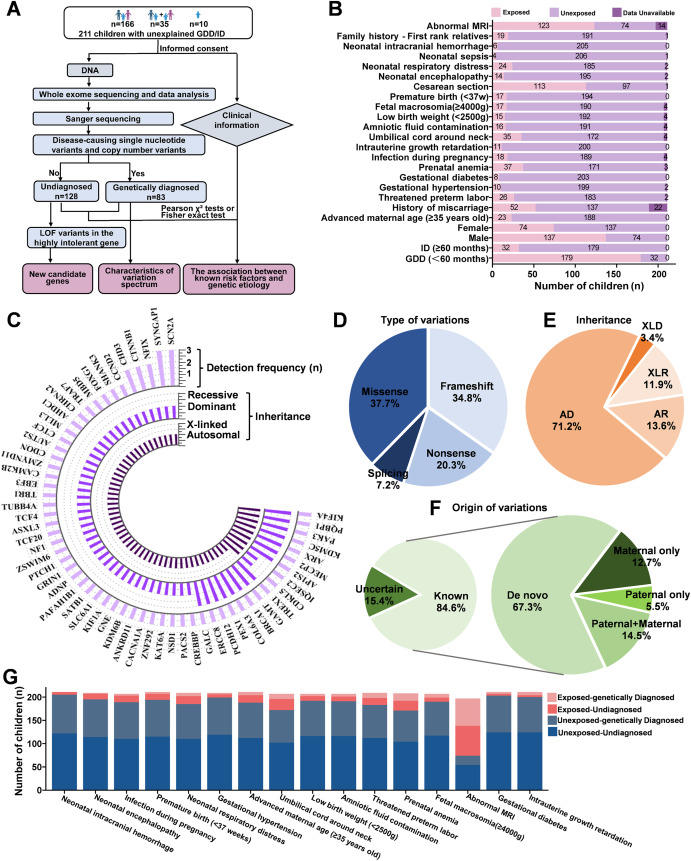
Clinically relevant variants detected in Chinese children with global developmental delay/intellectual disability: An exome-wide sequencing study


Global developmental delay/intellectual disability (GDD/ID) with a prevalence of 1%–3% represents one of the biggest medical and social challenges in our society.1 Genetic factors are the main causes of GDD/ID and early diagnosis is crucial to improving the prognosis of GDD/ID children.2 Chromosomal microarray analysis, as a first-tier clinical test,3 remains limited because of the insufficient to detect small variations while whole exome sequencing (WES) can detect both single-nucleotide variants (SNVs) and copy-number variants (CNVs), effectively improving the diagnostic yield of GDD/ID.4 Various adverse risk factors could contribute to GDD/ID and the effects of a genetic variant can vary depending on the presence or absence of adverse preceding events.5 Herein, to evaluate the contribution of the genetic etiology to GDD/ID and to investigate the association between known risk factors and genetic etiology in children with GDD/ID, and further, to explore candidate pathogenic genes of GDD/ID, we conducted WES of a Chinese GDD/ID cohort.
